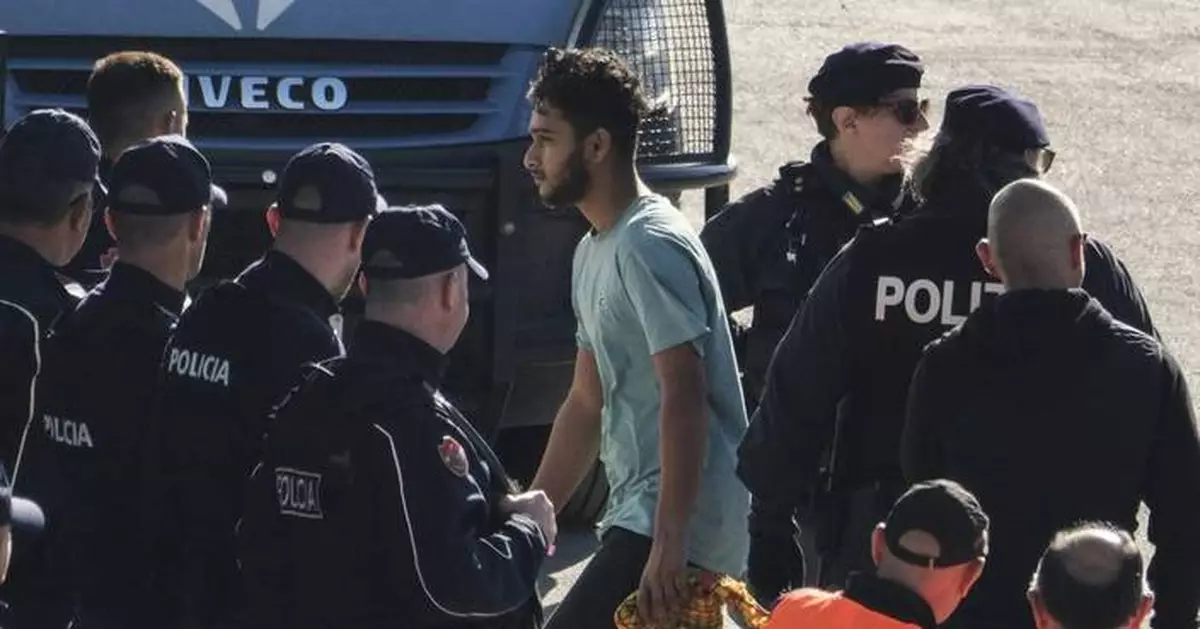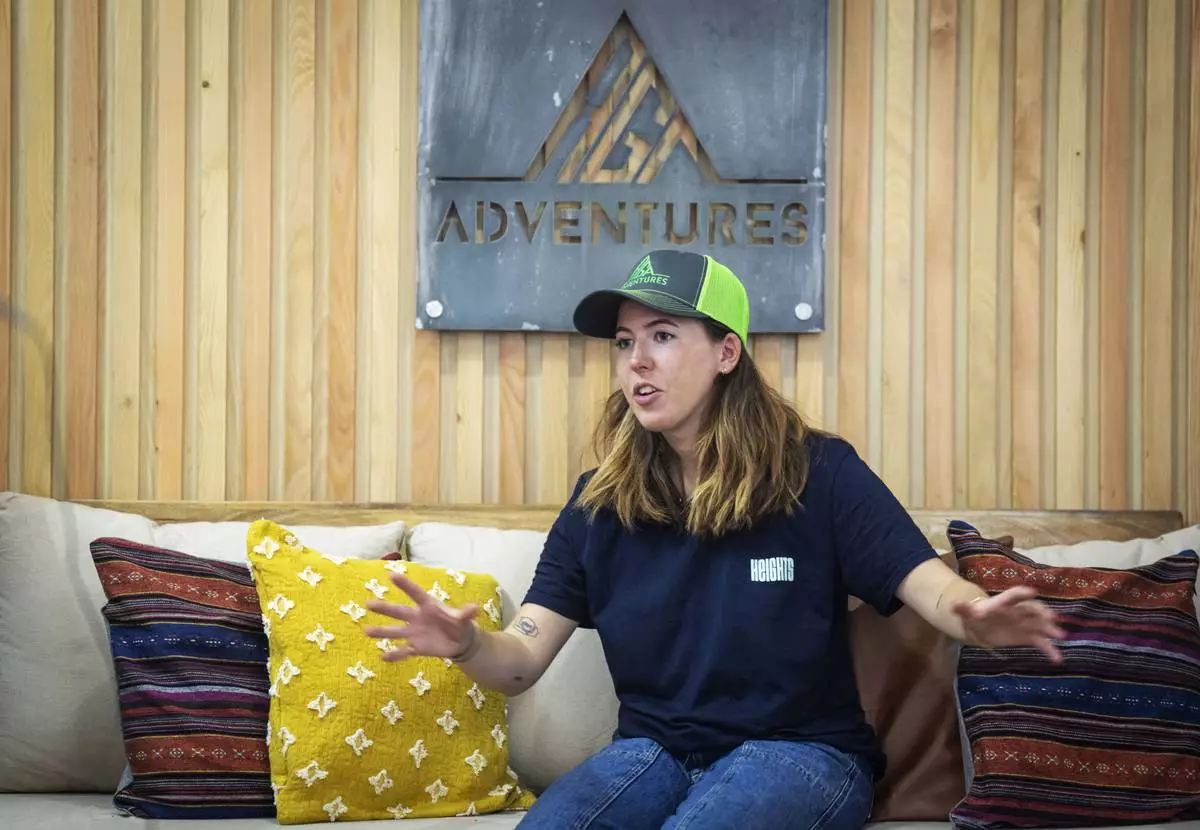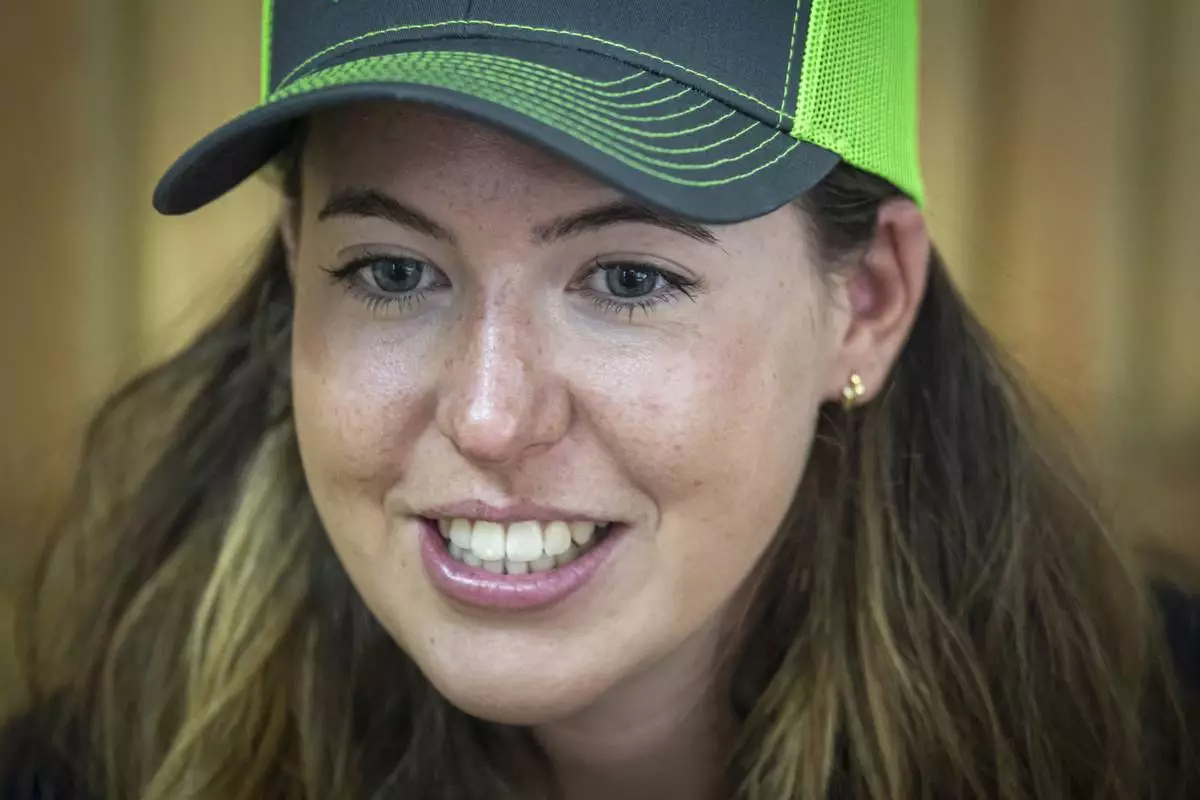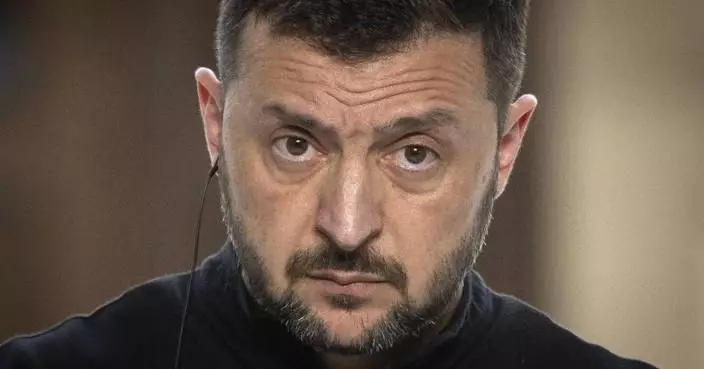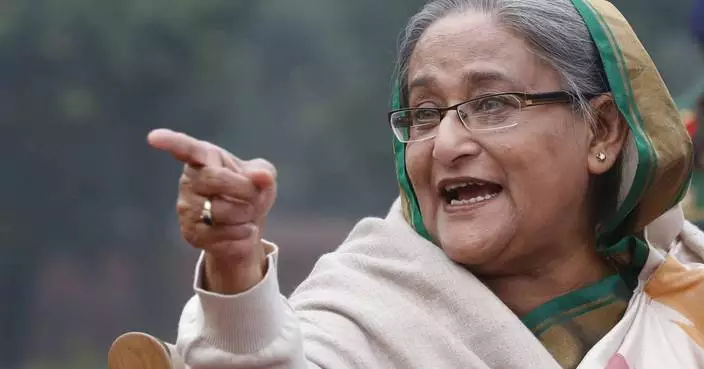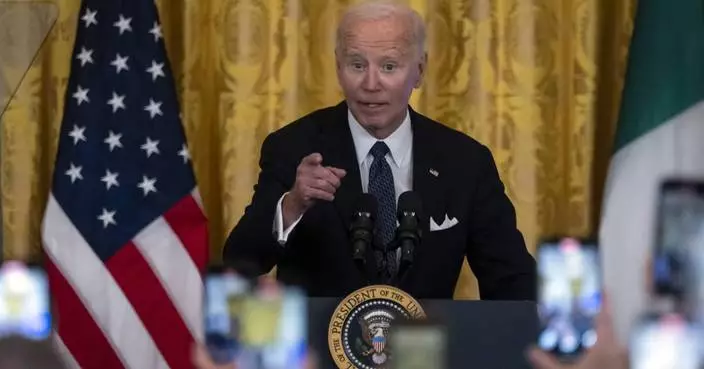BRUSSELS (AP) — European Union leaders used a summit Thursday to seek ways to make the bloc a more hostile destination for migrants and asylum seekers following a recent surge in support for the extreme right, which has fomented opposition to foreigners.
As the summit opened in Brussels, EU leaders were already looking at plans to speed up initiatives to get unwanted migrants out of the bloc and process asylum applications far outside their borders, seeking to buttress a reputation as a “Fortress Europe.”
“We see that there is a different mood in Europe,” said Dutch Prime Minister Dick Schoof, who heads a government dominated by the party of far-right firebrand Geert Wilders.
Danish Prime Minister Mette Frederiksen said that up to now, raising such issues was “a bit like shouting in an empty sports hall.” Now, she added, “there are many countries that work together on this.”
“A great number of Europeans are tired of us helping people from outside who commit crimes. Some are radicalized," she said. "It can’t go on like this. Therefore, there is a limit as to how many people we can help.”
The tenor of the debate is a far cry from 2015, less than a decade ago, when the EU was faced with a migration crisis. Well over a million migrants and refugees sought help then, mainly from the Middle East and Afghanistan. German Chancellor Angela Merkel, the EU's dominant national leader at the time, famously said, “We can manage that.”
Now, EU leaders want to manage and seal off their borders ever more tightly, embracing initiatives that would have looked unacceptable only a few years ago.
In recent weeks, Poland has said it wants to temporarily suspend the right to asylum, Italy has opened two centers to process asylum seekers outside its borders in Albania, and Germany has reinstated border controls — all of them measures going in the same direction.
The plan lays out rules for the 27 member countries to handle people trying to enter without authorization, from how to screen them to establish whether they qualify for protection to deporting them if they’re not allowed to stay. It also sets out a mechanism for burden-sharing, which has been rejected by Hungary and Poland.
But with the extreme right surging in the EU parliamentary elections in June and in other polls in Germany and Austria since, migration remains a trigger button for leaders.
Even if some 3.5 million migrants arrived legally in Europe in 2023, some 1 million others were on EU territory without permission.
Politically, populist and hard right parties have had success in pushing for tougher migration rules, and after wins in German regional elections, Chancellor Olaf Scholz is feeling the heat too.
He called the new EU asylum system “great progress” and pushed for it to be "introduced earlier everywhere in Europe.”
He said individual countries’ measures such as border controls introduced by Germany have led to “a significant reduction of irregular migration.”
He insisted that “not everyone can come” and added, ”the reduction of irregular migration is the precondition for the openness we need.”
EU Commission President Ursula von der Leyen underscored that with an unusually detailed pre-summit letter to the leaders, insisting there was “no room for complacency” as she called for parts of the 2026 plan to be in place much sooner.
She also extends it to setting up “innovative” projects, like Italy's outsourcing of asylum applications to Albania. “We will also be able to draw lessons from this experience in practice,” von der Leyen wrote.
Schoof's Dutch government is looking at Uganda to set up the outsourcing. “These are innovative solutions that should in principle interest our colleagues here,” he said.
Polish Prime Minister Donald Tusk will also be presenting his plan to suspend the right for migrants to seek asylum, one of the fundamental rights established in Europe after World War II.
Poland has accused Belarus and Russia of organizing the mass transfer of migrants from the Middle East and Africa to the EU’s eastern borders to destabilize the West. Tusk says it is part of a hybrid war as Moscow continues its nearly three-year full-scale invasion of Ukraine.
Even though Tusk was criticized by several human rights organizations, others have shown understanding for Poland's predicament.
But EU nations have for years been deeply divided over how to deal with migrants arriving irregularly in the bloc and how to share the effort to deal with them, making it unlikely that any decisive action will come out of Thursday's summit.
Follow AP's global migration coverage at https://apnews.com/hub/migration
Corder reported from The Hague, Jan M Olsen contributed from Copenhagen, Geir Moulson from Berlin.
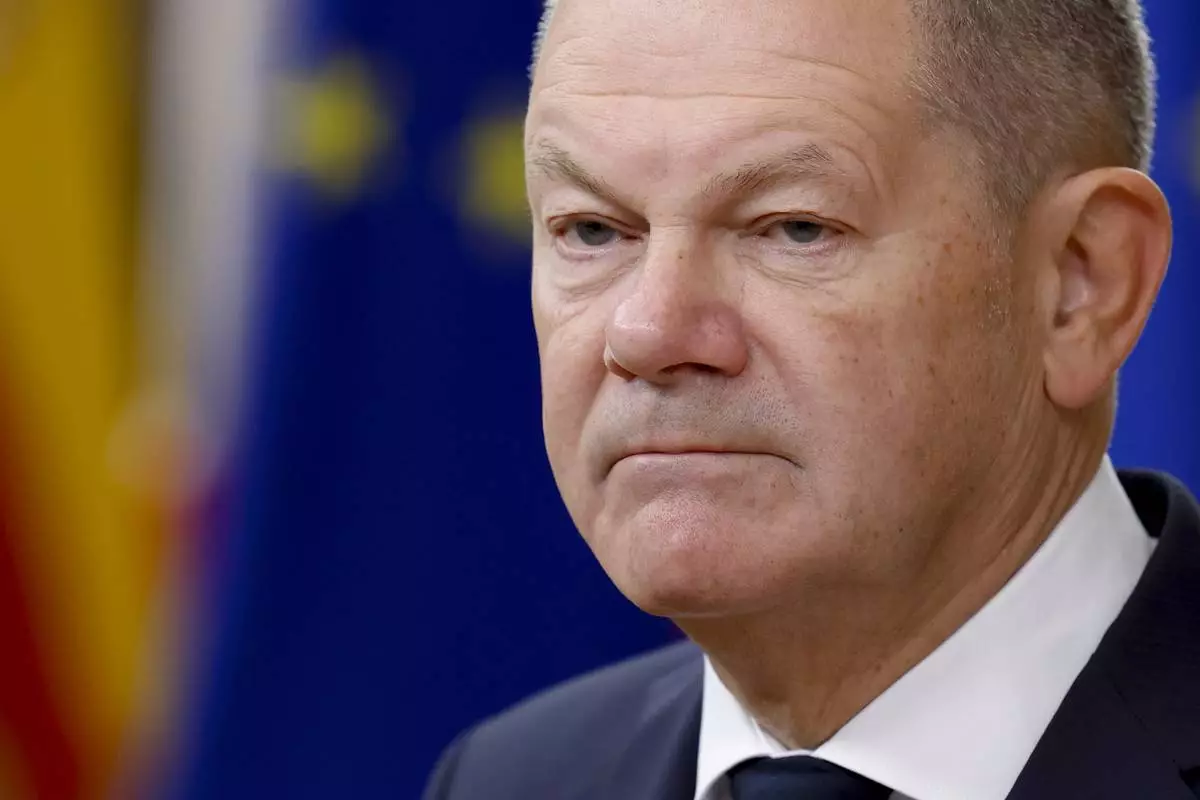
Germany's Chancellor Olaf Scholz talks to journalists as he arrives to an EU summit in Brussels, Thursday, Oct. 17, 2024. (AP Photo/Geert Vanden Wijngaert)
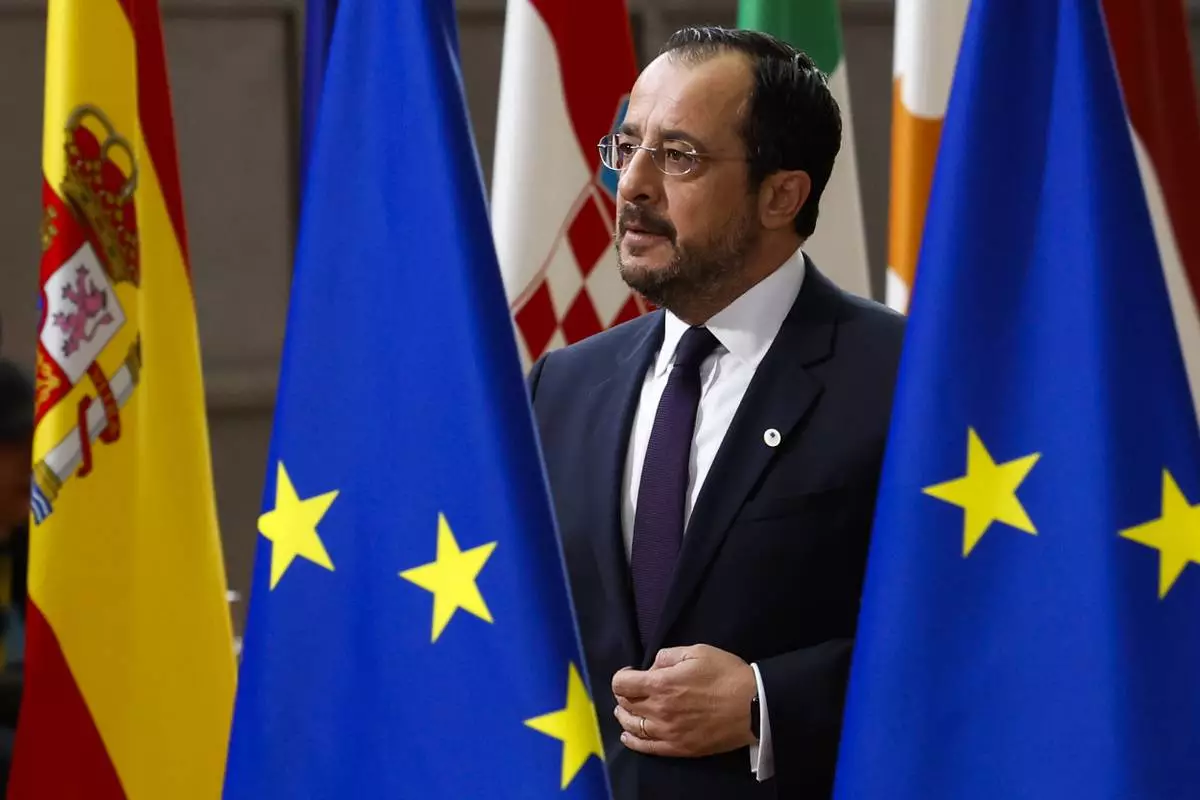
Cypriot President Nikos Christodoulides arrives to an EU summit in Brussels, Thursday, Oct. 17, 2024. (AP Photo/Geert Vanden Wijngaert)
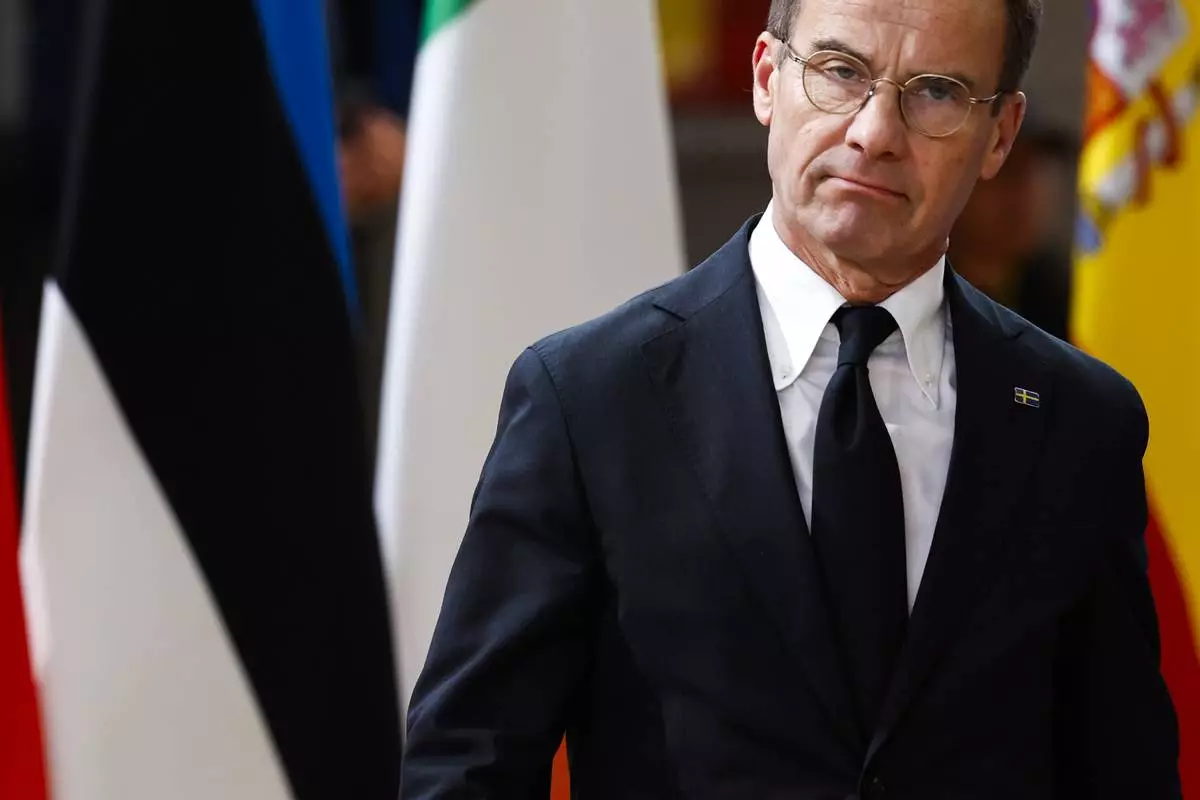
Sweden's Prime Minister Ulf Kristersson arrives to an EU summit in Brussels, Thursday, Oct. 17, 2024. (AP Photo/Geert Vanden Wijngaert)
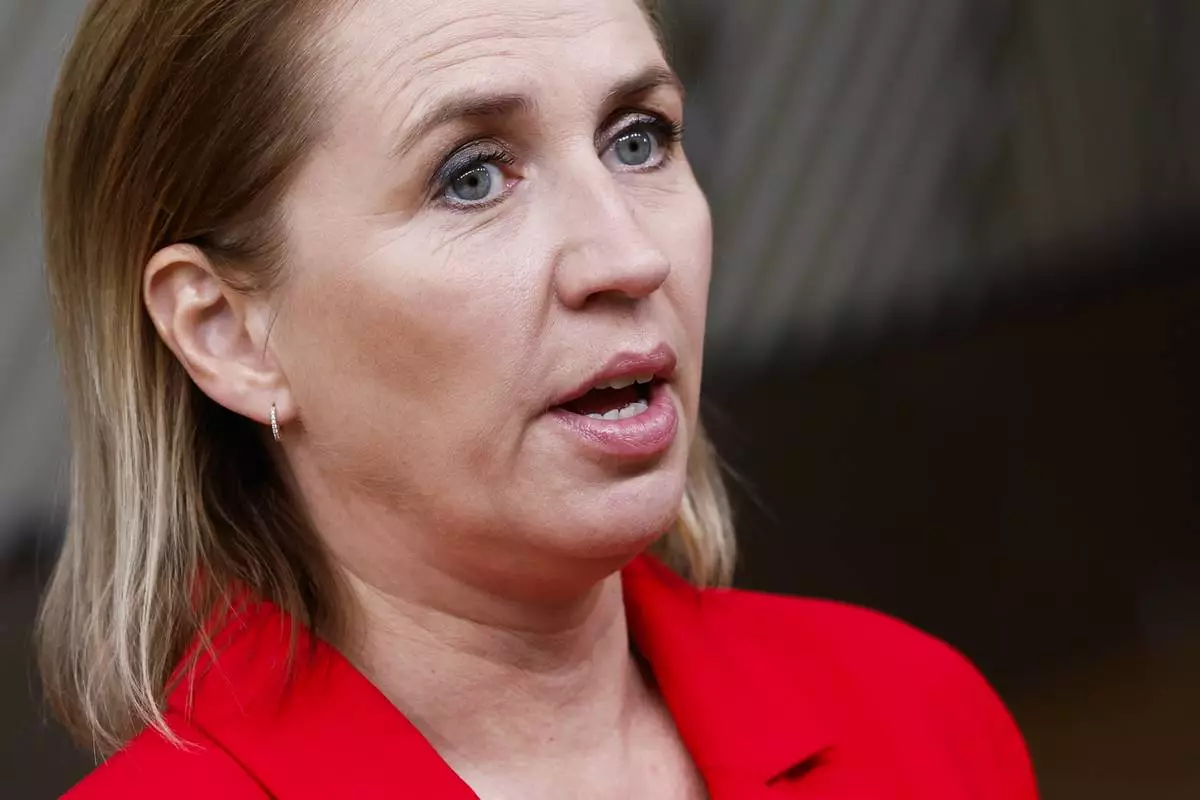
Denmark's Prime Minister Mette Frederiksen talks to journalists during an EU summit in Brussels, Thursday, Oct. 17, 2024. (AP Photo/Geert Vanden Wijngaert)
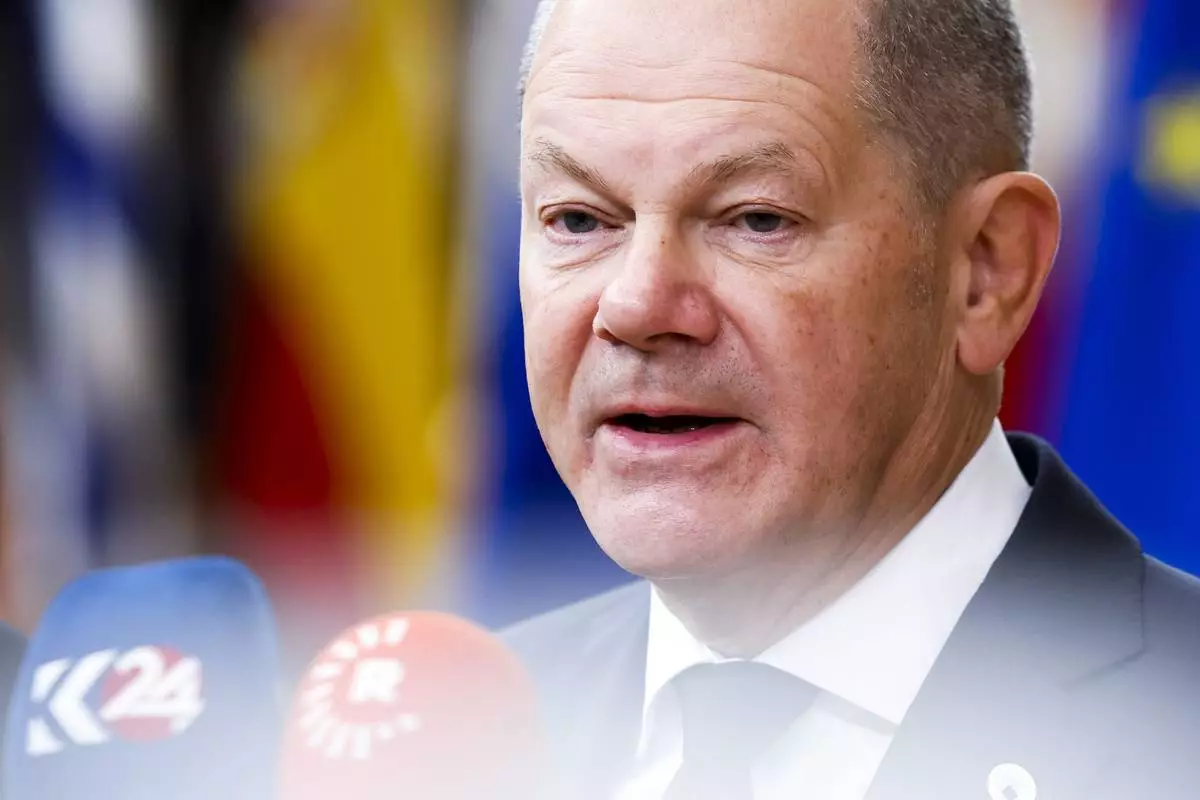
Germany's Chancellor Olaf Scholz talks to journalists as he arrives to an EU summit in Brussels, Thursday, Oct. 17, 2024. (AP Photo/Geert Vanden Wijngaert)
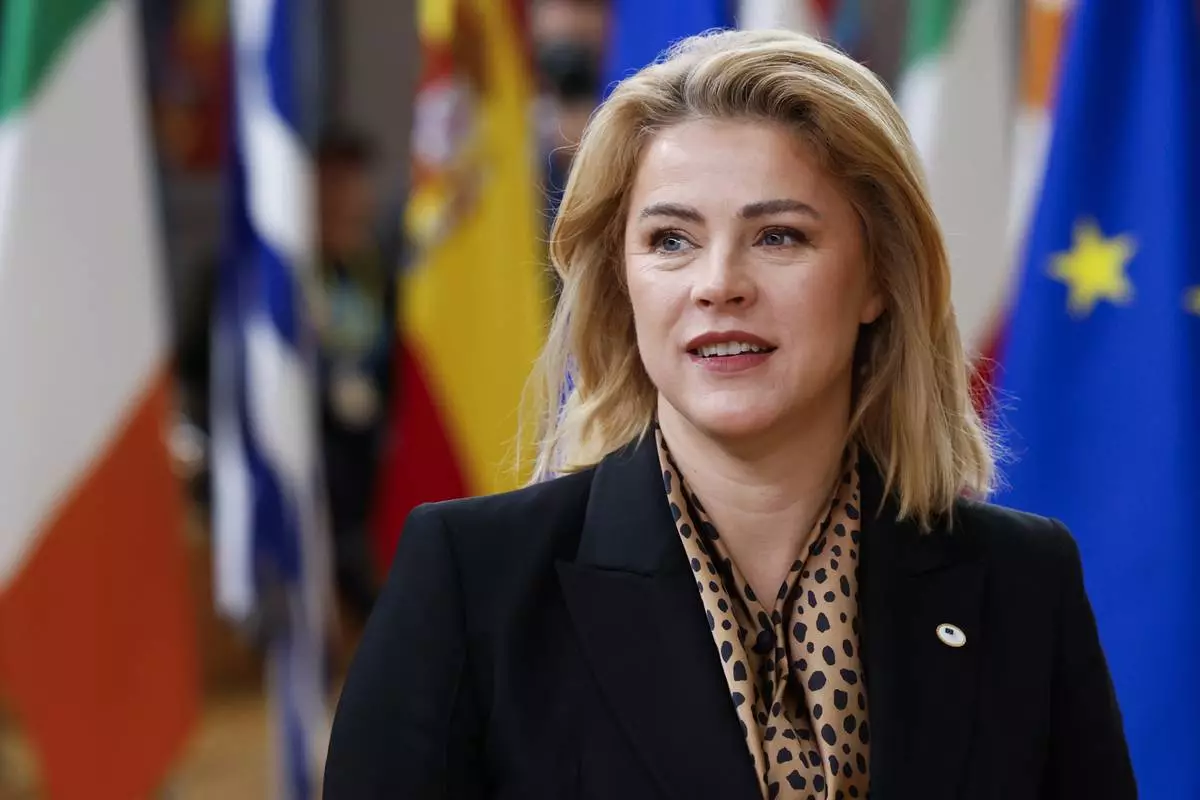
Latvia's Prime Minister Evika Silina arrives to an EU summit in Brussels, Thursday, Oct. 17, 2024. (AP Photo/Geert Vanden Wijngaert)
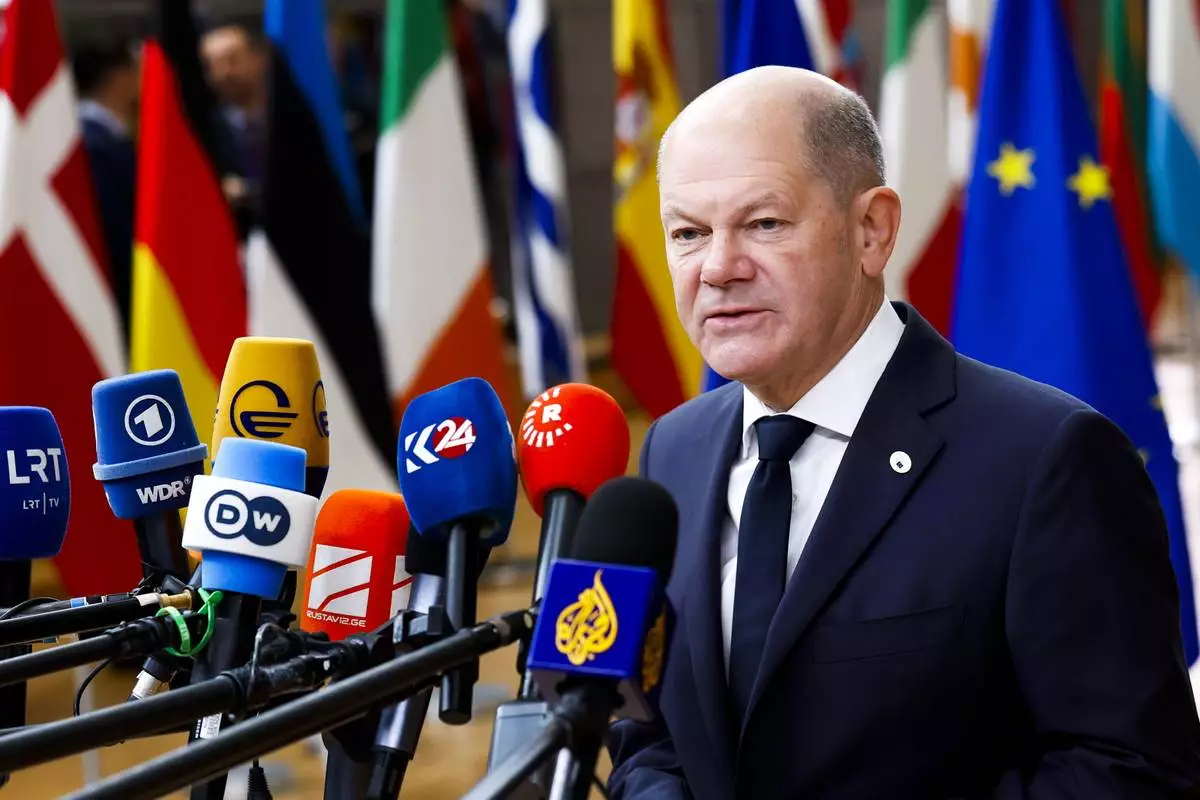
Germany's Chancellor Olaf Scholz talks to journalists as he arrives to an EU summit in Brussels, Thursday, Oct. 17, 2024. (AP Photo/Geert Vanden Wijngaert)
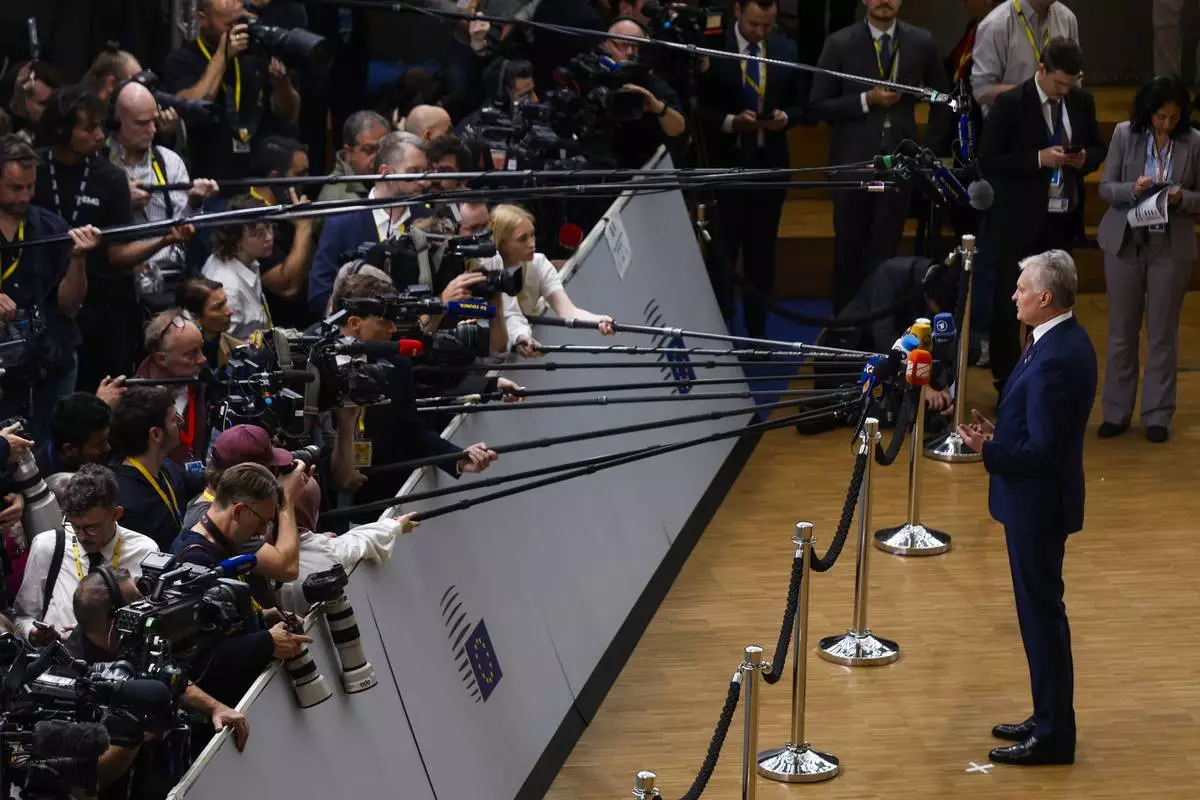
Lithuania's President Gitanas Nauseda talks to journalists as he arrives to an EU summit in Brussels, Thursday, Oct. 17, 2024. (AP Photo/Omar Havana)
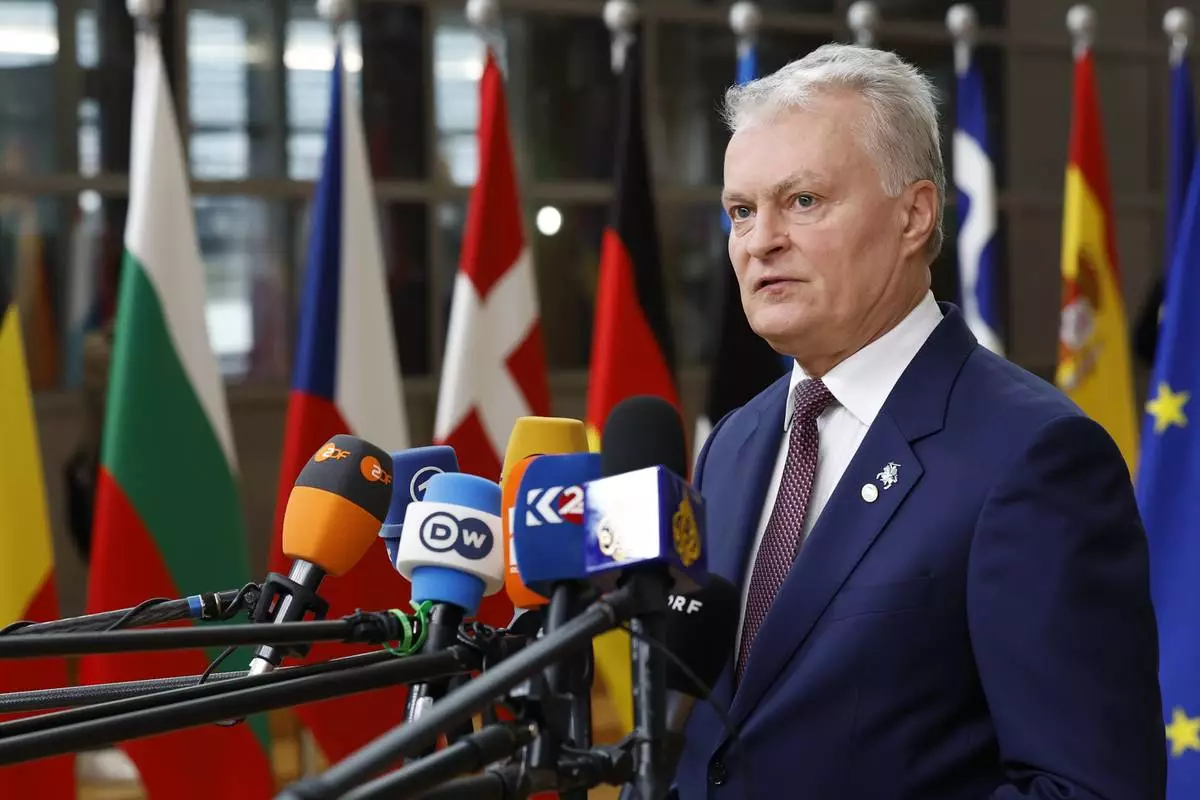
Lithuania's President Gitanas Nauseda talks to journalists as he arrives to an EU summit in Brussels, Thursday, Oct. 17, 2024. (AP Photo/Geert Vanden Wijngaert)
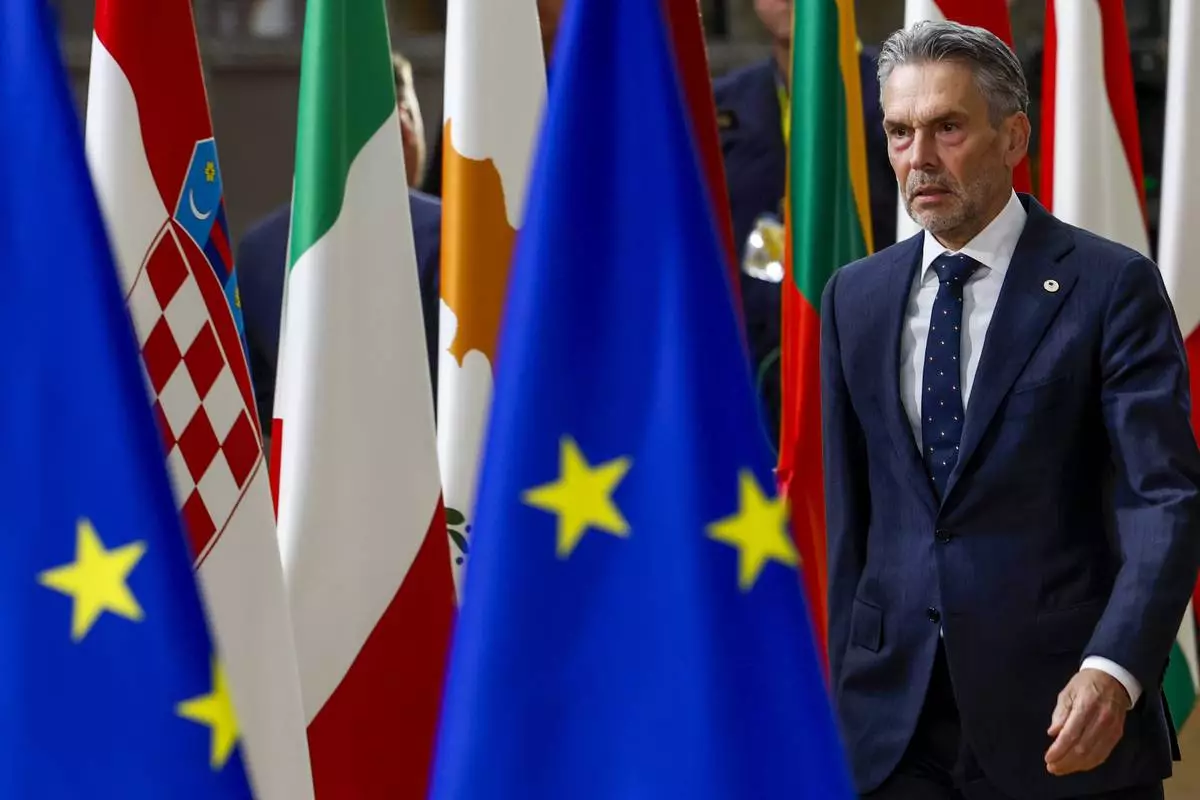
Netherland's Prime Minister Dick Schoof arrives to an EU summit in Brussels, Thursday, Oct. 17, 2024. (AP Photo/Geert Vanden Wijngaert)
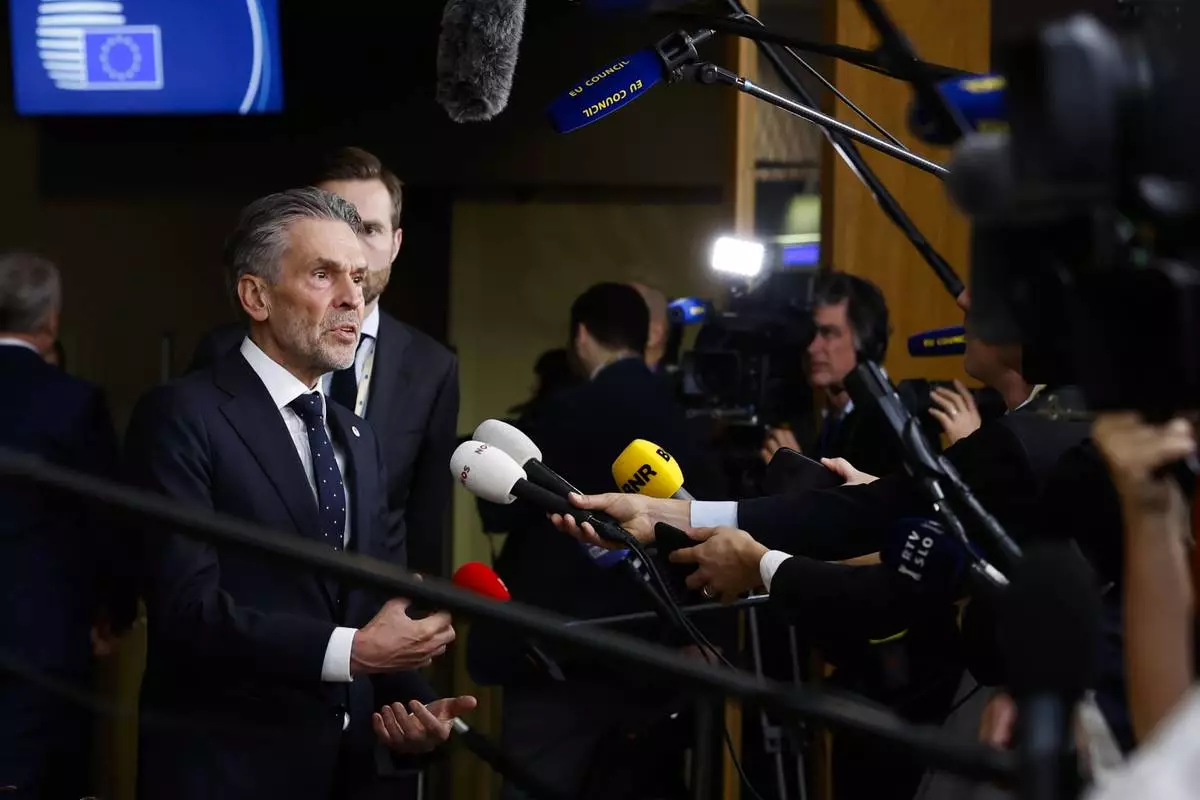
Netherland's Prime Minister Dick Schoof talks to journalists as he arrives to an EU summit in Brussels, Thursday, Oct. 17, 2024. (AP Photo/Geert Vanden Wijngaert)
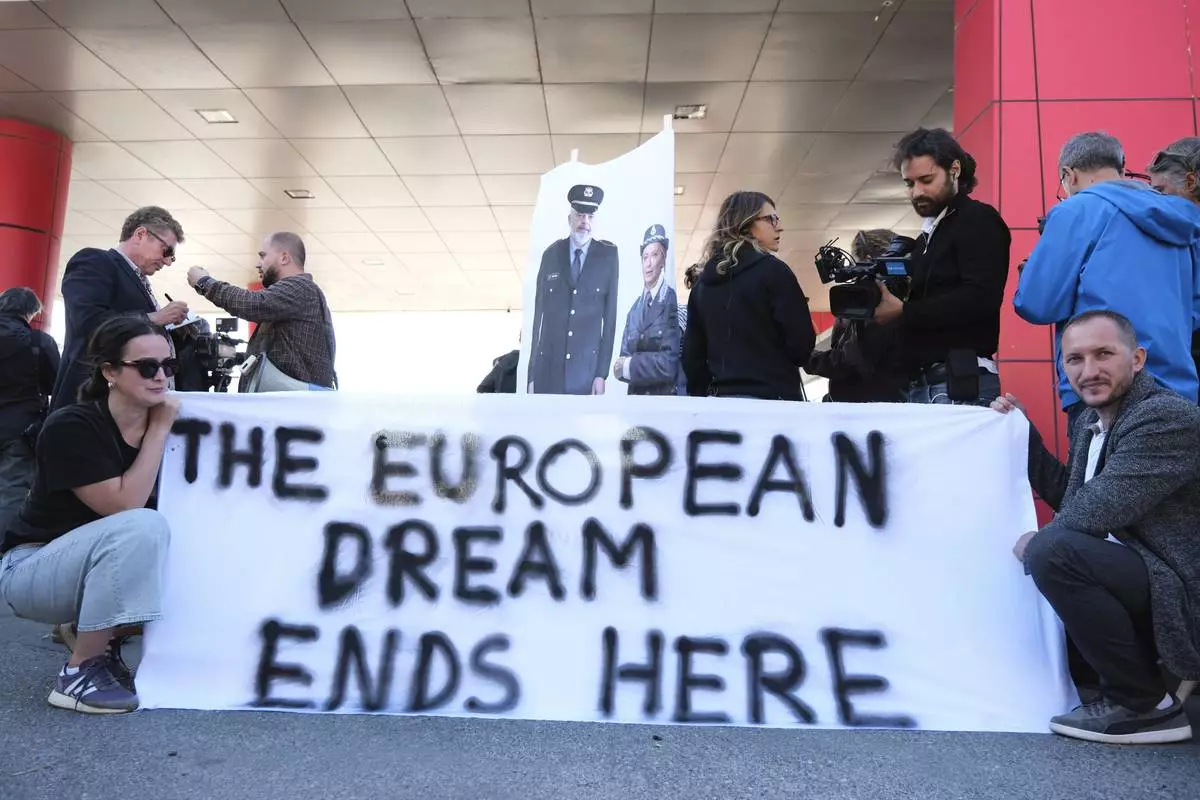
Activists, holding pictures of the Italian and Albanian premiers dressed as police officers, protest at the entrance of the port of Shengjin, northwestern Albania, Wednesday, Oct. 16, 2024, following the arrival of an Italian navy ship carrying the first group of migrants who were intercepted in international waters. (AP Photo/Vlasov Sulaj)
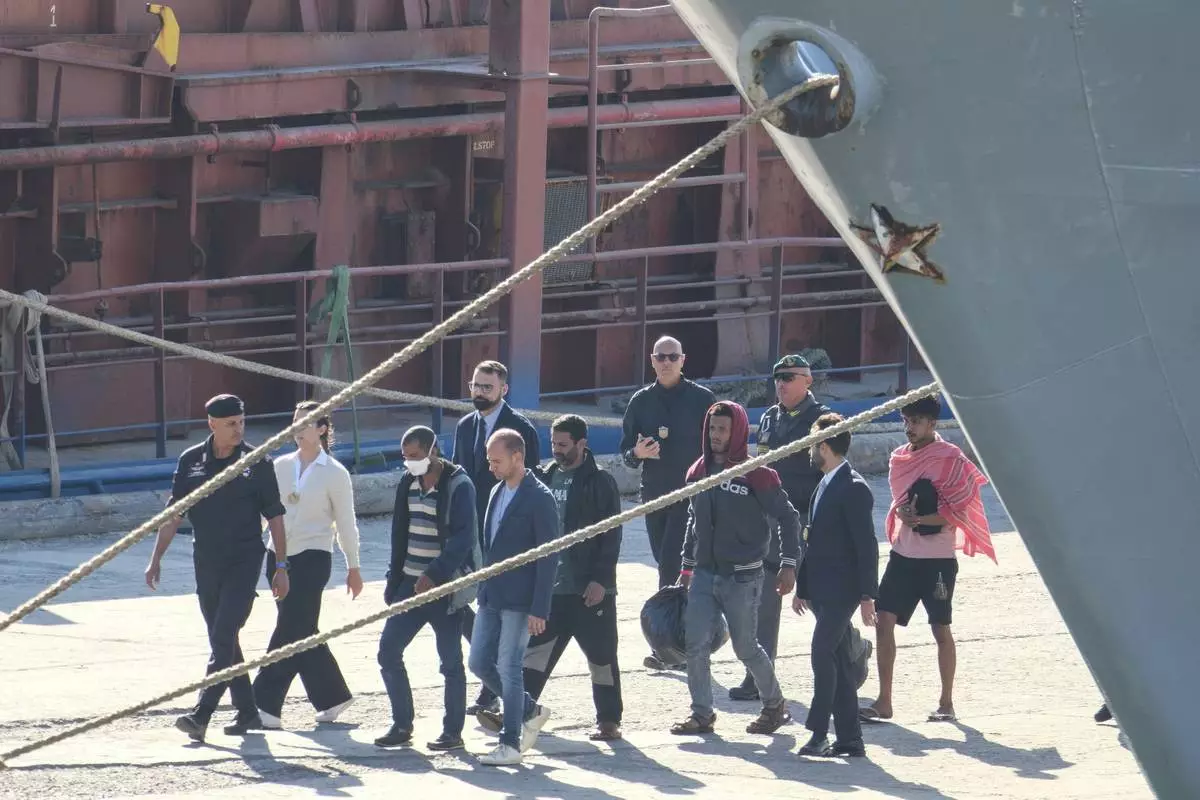
Migrantw and security officials walk at the port of Shengjin, northwestern Albania. Wednesday, Oct. 16, 2024 after disembarking from the Italian navy ship Libra, carrying the first group of 16 migrants intercepted in international waters. (AP Photo/Vlasov Sulaj)
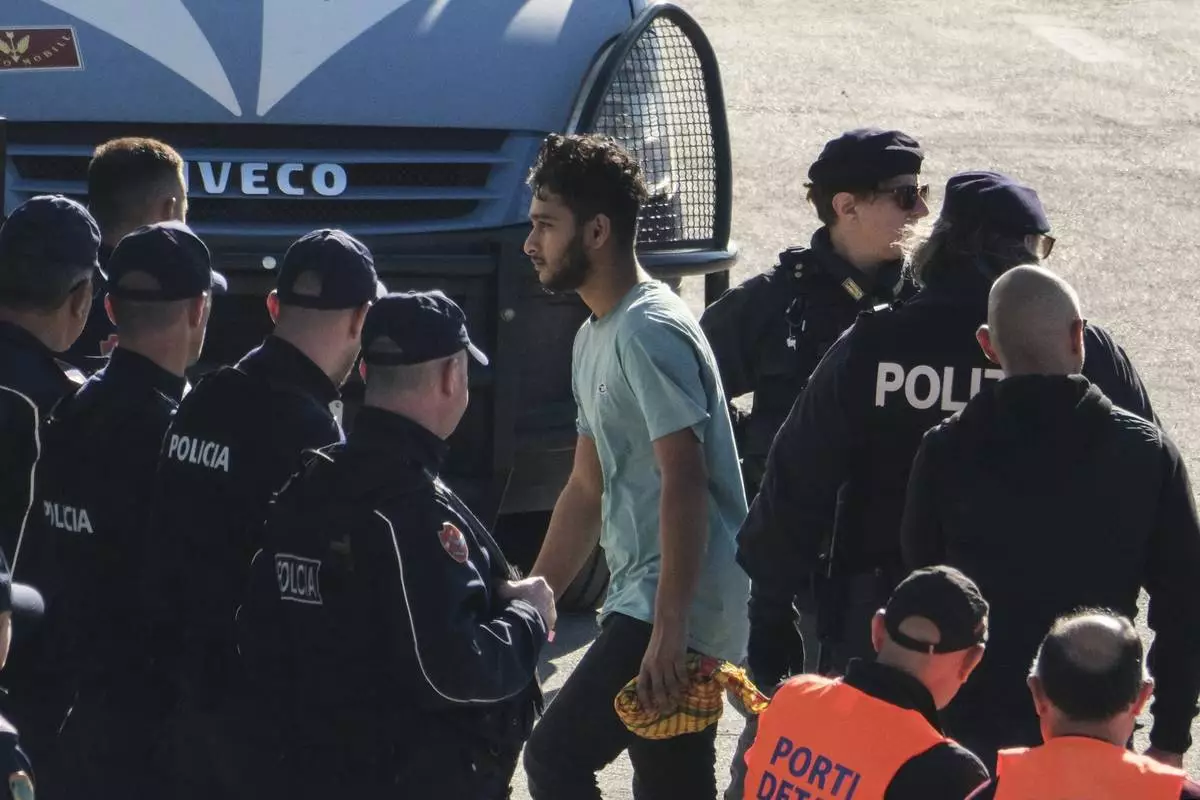
A migrant walks next to security officials at the port of Shengjin, northwestern Albania. Wednesday, Oct. 16, 2024 after he and other migrants disembarked from the Italian navy ship Libra carrying the first group of 16 migrants intercepted in international waters. (AP Photo/Vlasov Sulaj)


